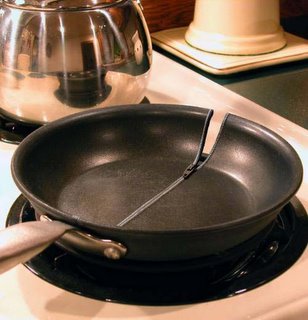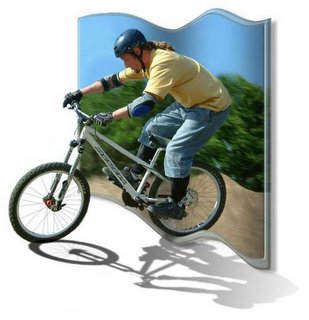Use appliance thermometers to make sure your freezer and refrigerator maintain proper temperatures for safe food storage. Refrigerators should maintain a temperature of 40 degrees F or below, and freezers should maintain a temperature of 0 degrees F or below.
Cool it Quickly
Hot foods bound for the refrigerator or freezer must be cooled quickly for two reasons. First, it decreases the chance for harmful bacteria to grow, keeping your food safe to eat. Second, in the case of freezing, it allows the food to freeze faster, preventing the formation of large ice crystals that may ruin the flavor and texture of foods. Here's how to cool food quickly.
- Divide cooked foods into small portions in shallow containers. As a general rule, divide soups and stews into portions that are two to three inches deep, and stir them while cooling to speed the release of heat. Divide roasts and whole poultry into portions that are two to three inches thick. Place the small portions of hot food directly in the refrigerator. Remove stuffing from poultry and refrigerate in separate containers.
- If the final destination is the freezer, transfer cold food from the refrigerator to the freezer. Arrange containers in a single layer in the freezer until frozen; this allows the cold air to circulate around the packages, freezing the food faster. Stack them after they are completely frozen. Note: Never let perishable foods stand at room temperature to cool before they're refrigerated or frozen.
Follow these guidelines when purchasing storage containers and food wraps for the refrigerator or freezer.
Containers: Most airtight food storage containers with tight-fitting lids -- even disposables -- provide adequate protection in the refrigerator. When shopping for freezer-safe containers, however, look for a phrase or an icon on the label or container bottom indicating that they are designed for freezer use.
Baking dishes: When freezing, use freezer-to-oven or freezer-to-microwave dishes and cover the surface with plastic freezer wrap or heavy-duty foil (if using foil, see note below).
Glass jars with tight-fitting lids: All major brands of canning jars are acceptable for use in the refrigerator and freezer. If freezing liquid and semiliquid foods, leave headspace in the jar so the food can expand as it freezes.
Self-sealing storage bags and plastic wraps: Products are available for both refrigerator and freezer storage.
Regular or heavy-duty foil: When freezing food, use only heavy-duty foil.
Note: Do not use foil to wrap foods that contain acidic ingredients, such as tomatoes. Acid reacts with the foil, giving the food an odd flavor. To refrigerate or freeze a casserole that contains tomatoes or another acidic ingredient, first cover the food with plastic wrap, then with foil; remove the plastic wrap before reheating.
Be Label Conscious
Always take a moment to properly label food before you freeze it. Using a wax crayon or waterproof marking pen, note on the package the name of the item or recipe; the quantity, date, and number of servings; the date it was frozen; and any special information about its use. Follow recommended storage times included in recipes.






















































